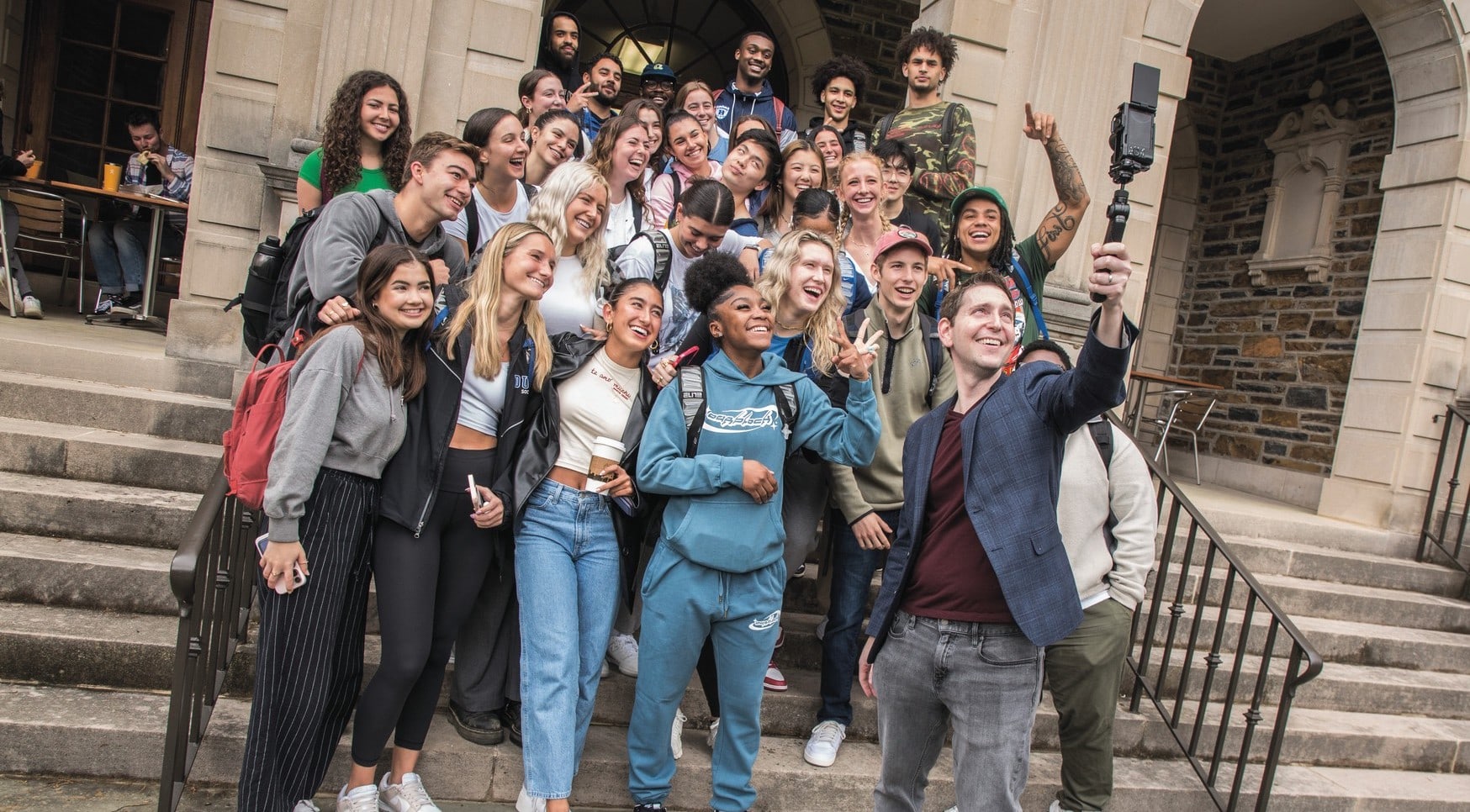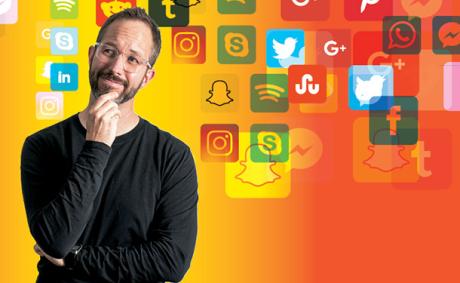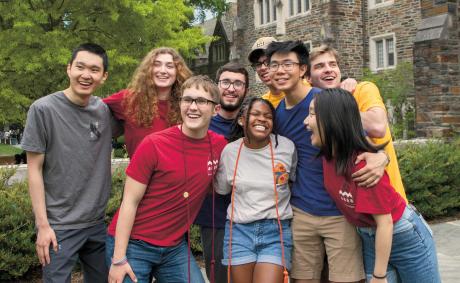Aaron Dinin ’05 and his students rewind TikTok video after TikTok video, arguing over which ones work and why, hitting refresh to update the click count, tallying how long viewers remain engaged and whether they watch again. It may sound trivial – a course on TikTok? – but it’s the same critical analysis Dinin, a lecturing fellow in Duke Innovation & Entrepreneurship, brought to the dense papers he wrote about 14-line sonnets when he was earning his doctorate in English. Why does a post work? Why did the creator do this and not that? How can the students slingshot off of another creator’s success to build their own brands?
The class, officially called “Building Global Audiences” but known across campus as “the TikTok class,” teaches future entrepreneurs how to harness the power of social media to promote a brand or cause, but also to weigh the ethical consequences of their posts. The course has attracted media attention – including a segment on the Today Show – some of it questioning why a university with the prestige of Duke would offer a class on optimizing yourself on social media.
“Why wouldn’t they?” Dinin wrote in one of his hundreds of essays on Medium, where he has 36,000 followers. “Some of the most influential and impactful people in the modern world are social media content creators. Ignoring that reality seems like a gross violation of academic responsibility.”
“Some of the most influential and impactful people in the modern world are social media content creators. Ignoring that reality seems like a gross violation of academic responsibility.”
Aaron Dinin
Social media is a tiny stop along the continuum of evolving language technologies, Dinin says. Snubbing it would be to act like Plato. “He would yell at his students for writing things down, saying, ‘That’s that thing that kids are doing, and it’s going to cause the ruin and downfall of society because we can’t remember things as well!’”
Follow that with resistance to the printing press, which took down the Catholic Church when Martin Luther printed his treatises and nailed them on church doors. Each iteration of communication technology has amplified a person’s ability to get a message out to the public, and now social media has made it possible to reach millions from a dorm room in Durham, North Carolina, Dinin says. “That’s unprecedented. It’s crazy! But if students are going to do that, we need to be in the room with them and make sure they’re asking valuable and important questions about the implications of their posts. How are they using that power?”
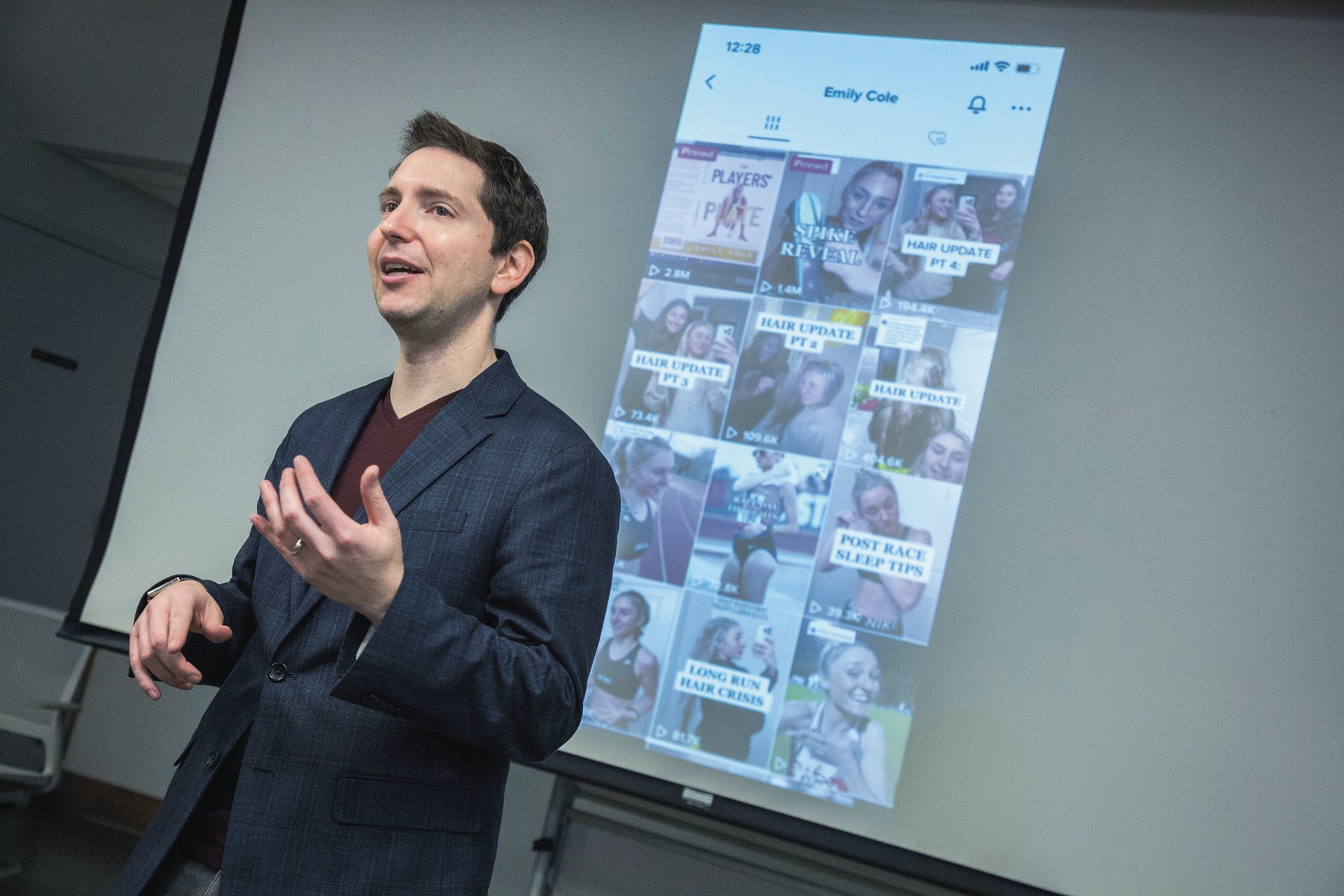
Dinin’s course, which is open only to students with proof of the self-motivation it takes to maintain a presence on a social media platform, combines the critical analysis of an English class with the incessant measuring of outcomes from a course in marketing. This is all overlain with discussions of ethics, because as with other forms of language technology, social media can lead to great good and great evil.
“Our students are building audiences with and without us,” says Jamie Jones, director of Duke Innovation & Entrepreneurship. “In addition to teaching them the tools, we need to help them think about the consequences. What is ethical behavior, particularly for our student athletes, our student creatives? We need to teach them to think about the intentionality of that usage and what it means – the responsibility of it.”
Dinin’s students can work on growing their own audiences or they can team up to boost someone else’s. Isaiah Williams and his partners crafted a campaign for Ruben Mesalles, a 20-year-old left back for Duke’s soccer team who, due to a recent NCAA ruling, can now earn money off of his name, image and likeness without losing his amateur status. Mesalles had amassed about 7,000 followers for videos he posted in high school. By the end of the TikTok course he had 122,000 people watching him dribble through cones and kick corner goals, often assisted by teammate Grant Farley.
“I knew that soccer content can become very viral because of how international it is,” Williams says. One post, which was picked up by the Instagram accounts of Sports Center and the Bleacher Report, garnered 13 million views. “You don’t need to understand English to appreciate the content, and that unlocks so many more potential viewers.”
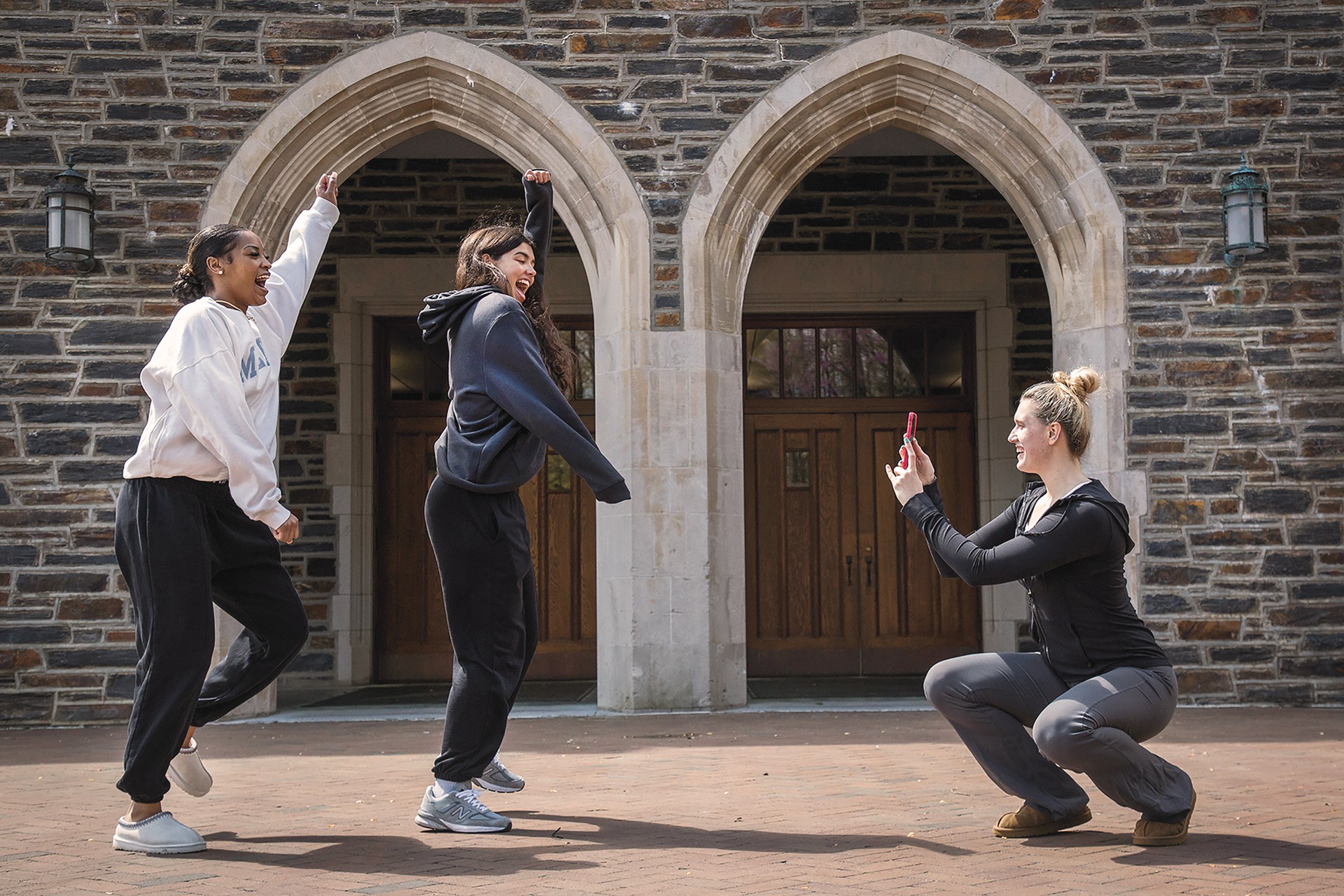
Plus, there is already a ton of soccer content out there, and fans who click on one will click on the next and the next, so it’s smart to go where there’s already an audience and create something similar, whether that’s makeup and fashion videos, K-pop dance clips, sports highlights or stand-up comedy.
“You always want to be leveling up to the people with bigger audiences and trying to siphon them off,” Dinin says. “Don’t think about the people creating the same kind of content to you as your competitors. They’re more like your frenemies. You want to actually collaborate with them, because the people who are interested in them are also going to be interested in you.”
There are career opportunities for people who want to manage the social media presence of athletes, whose talent is on the field or court, Dinin says, not editing TikTok videos. And it is women’s sports and Olympic athletes who are most likely to see big benefits. “Nike previously could only buy TV commercials during a football game, but now if there’s a women’s softball player who’s got 200,000 followers and Nike wants to advertise a pair of cleats, it makes way more sense to target her. Lululemon wasn’t buying spots in the middle of the Super Bowl, but they would absolutely want to be buying spots out on a women soccer players’ feed.”
Other student teams promoted musicians and dancers, and women in STEM.
“Don’t think about the people creating the same kind of content to you as your competitors. They’re more like your frenemies. You want to actually collaborate with them, because the people who are interested in them are also going to be interested in you.”
Aaron Dinin
“That’s what’s so exciting about this industry. It feels like there’s a whole lot of innovation that still needs to take place,” Williams says. Younger people don’t engage with traditional media as much when they can pick up their phone and watch a quick clip on YouTube. “Ultimately, advertisers just want the eyes of the people. And they’re going to realize sooner or later that TikTok, Instagram, YouTube … all these social media platforms are where eyes are going to be. And we’re all on the cutting edge.”
Dinin also keeps himself on the cutting edge. The longtime entrepreneur and software developer has founded three tech companies, participated in the technology accelerators DreamIt Ventures and The Startup Factory, and a decade ago was named a Microsoft fellow for his work on tech startups. In 2013 he co-founded a venture-backed sales technology company based in Durham called RocketBolt. To make himself a better teacher, he threw himself into social media for a year, posting nearly 500 articles about entrepreneurship on Medium, then expanding to a newsletter and podcast, and dabbling in TikTok. This semester he is building a business in public, so followers can learn from his mistakes, and he’s launched an online version of his Building Global Markets class for entrepreneurs outside of Duke.
“I spend tons of time creating content,” he says. “It’s a full-time job.” It is also research, and he takes the strategies he learns there – about effective content, headlines, cadence – back to the classroom, always pushing students to evaluate what works and why.
“My goal is to teach them critical analysis,” he says, because what works today won’t work six months from now, but being able to figure out why something is popular will allow students to adapt years from now.
That’s particularly important because a recent survey of more than 1,300 Fuqua alumni found that 16 percent launch an entrepreneurial venture at some point, Jones says. Most don’t begin until 13 years after they’ve earned their MBA, so being able to evaluate how to use social media decades from now is an important skill.
Of course, one of the biggest things some students learn is that they absolutely do not want to be a professional creator. “A lot of them come away saying, I would never want to do this for a living,” Dinin says, “because it’s a 24-hour, seven-day-a-week job.”
